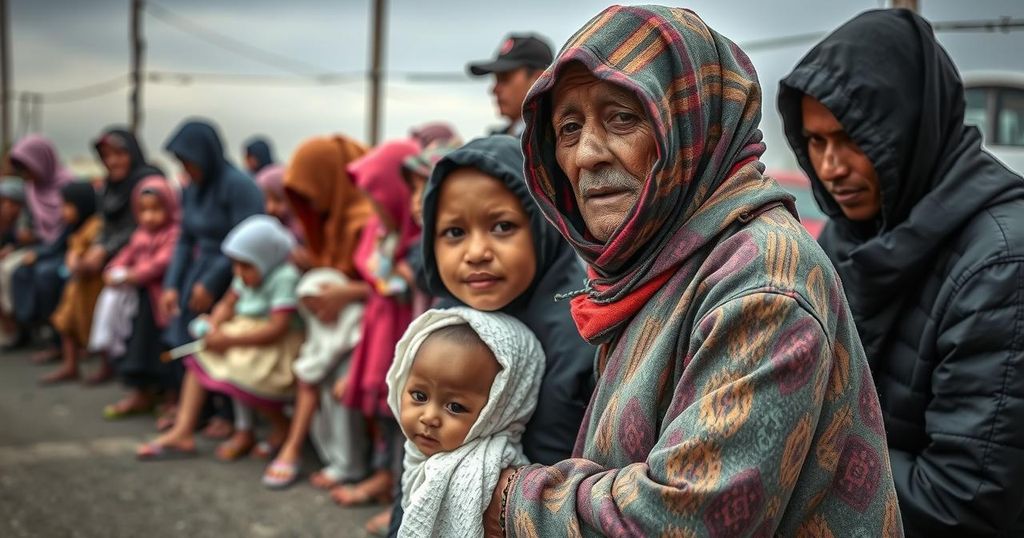The UNHCR report highlights the compounded crisis of climate-induced displacement and violent conflict driving refugees into dire situations. With record numbers of individuals displaced by both factors, the limited funding for vulnerable nations exacerbates their plight. Climate change and extreme weather events heighten risks, calling for urgent global action to support affected populations and address systemic inequities.
A recent report from the United Nations High Commissioner for Refugees (UNHCR) elucidates the intertwined challenges faced by refugees, underscoring the dual threat of climate-related displacement amid ongoing violent conflicts in their home countries. The report highlights alarming trends, as extreme weather events such as floods, droughts, and heatwaves exacerbate the already precarious situations in nations like Sudan, Somalia, and Myanmar. UNHCR chief Filippo Grandi emphasized that those who are compelled to evacuate their homes are at the forefront of this burgeoning crisis. Furthermore, a staggering 75% of refugees reside in developing countries, which are at heightened risk for climate-related adversities, yet these nations receive drastically limited funding for adaptation efforts.
The report reveals a staggering statistic: approximately 120 million individuals have been forcibly displaced due to violent conflicts, while an additional 220 million have relocated internally due to natural disasters. Concurrently, the planet has been experiencing unprecedented warming trends, with 2023 confirmed as the hottest year on record, as reported by the National Oceanic and Atmospheric Administration (NOAA). Experts assert that a warming planet necessitates preparedness for increasingly severe climate impacts, such as more frequent extreme weather.
Low-income nations are facing immense pressure, compounded by social unrest and relentless climate-induced calamities. Refugees frequently find themselves relocating to remote regions that lack essential infrastructure capable of addressing the challenges posed by climate change. Andrew Harper, UNHCR’s special advisor on climate action, remarked on the intensifying hardship faced by these individuals.
In response to this escalating crisis, nations convened at COP29 in Baku, Azerbaijan, to discuss potential solutions, pledging significant financial commitments to assist the most vulnerable countries. UNHCR aims to implement various objectives by 2030 to enhance the resilience of at-risk populations and promote sustainable development. Najeeba Wazefadost of Refugees for Climate Action articulated the urgency of the situation, urging leaders to recognize the critical narratives of affected individuals and to respond with measures that empower refugee-led initiatives.
The UNHCR report addresses the compound challenges of rising global temperatures and violent conflicts that contribute to the plight of refugees. Climate change has been increasingly recognized as a significant driver of displacement, with extreme weather events increasingly pushing populations into perilous conditions. Developing countries, which are disproportionately affected by these changes, struggle to secure adequate funding for adaptation, leaving refugees in a lurch. The report contextualizes the current state of displacement in light of previous trends, underlining the urgent need for global action.
In summary, the recent UNHCR report sheds light on the pressing issues surrounding climate change and conflict that are compounding the refugee crisis. A record number of individuals are being displaced, with funding and resources available to aid these populations remaining alarmingly low. The international community must respond decisively to support vulnerable countries and empower affected individuals. As climate conditions worsen, the resilience of refugees and their host communities hangs in the balance, necessitating immediate and substantial action.
Original Source: www.thecooldown.com






